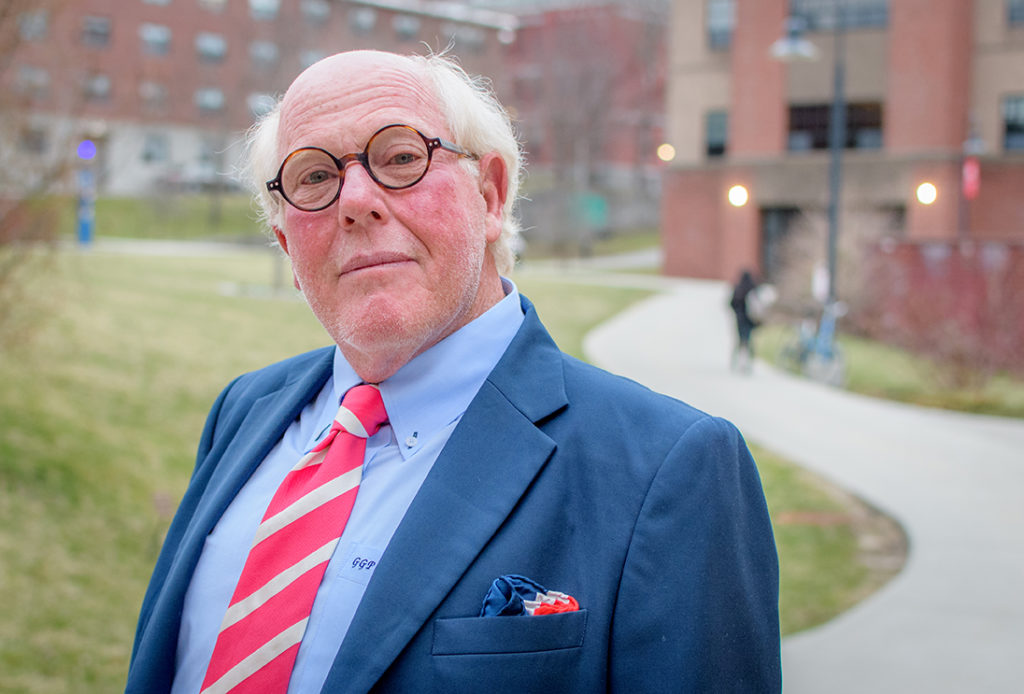Glenn Parish ’71 feels the pull of Holocaust history

A love of history inspired Glenn Parish ’71 to read widely when he was growing up. But it was his family’s history that focused his attention on the Holocaust. Parish’s uncle and cousin were Holocaust survivors, and his parents were emotionally engaged with the trauma of that terrible event.
As a consequence, when the New Haven, Conn., native attended Clark, he was drawn to the European history of the late 19th and early 20th centuries. In his college years, there were no classes dealing with Nazi Germany, and his fascination with the subject remained on an amateur level. Any learning about the Holocaust he did on his own.
Following graduation, Parish earned a master’s degree in city planning from Rutgers University. He worked for the Philadelphia City Planning Commission in the mid-1970s and went on to earn an MBA from the Wharton School at the University of Pennsylvania. His career in commercial real estate, finance, and lending kept him busy for several decades, first in the Northeast and eventually in South Florida.
Parish continued to experience a “loving relationship with knowledge” and felt the tug of history. Shortly after the founding of the Strassler Center for Holocaust and Genocide Studies in 1998, Glenn and his wife, Leslie, attended a lecture given by the center’s then-director, Debórah Dwork. They were mesmerized — and agreed they would invest in the center’s mission.
Glenn and Leslie have established the Shahun Parish Doctoral Research Award because they believe in the value of doctoral training and the expansion of Holocaust-related education. Glenn describes his wife’s partnership in making the gift as a “supremely gracious gesture,” since she is not a Clark alumna. He says Leslie understands the university’s importance to the self-described “fun-seeking intellectual who grew up at Clark.”
In fall 2018, Parish, a member of the regional President’s Leadership Council, underwrote a series of South Florida speaking engagements for Strassler Center director Thomas Kühne, culminating in a public lecture at the Jewish Museum of Florida at Florida International University in Miami. Kühne introduced the work of the Strassler Center to a new audience, and delivered a lecture to master’s-level history students, thanks to the collaboration of FIU professor Oren Stier. This was a special occasion for Parish, who has been studying in the FIU master’s program since his retirement.
Parish asserts that his Clark history classes taught him to think critically, and his retirement years have given him space to further indulge his fascination with Holocaust history. He says a highlight of Kühne’s Florida visit was the time the two spent driving between events, an experience he likened to a “kid hanging out with a railroad conductor.”
The chance to meet students and other faculty members engaged in serious Holocaust scholarship is another special treat. Parish returned to campus in April to participate in the Strassler Center conference, “E Pluribus Unum? Memory Conflicts, Democracy, and Integration.” He attended every panel of the three-day event and soaked up knowledge with as much eagerness as any of the doctoral students in attendance, and with the unflagging enthusiasm he’s shown since he was reading history books as a boy in New Haven.
Mary Jane Rein is executive director of the Strassler Center for Holocaust and Genocide Studies.


